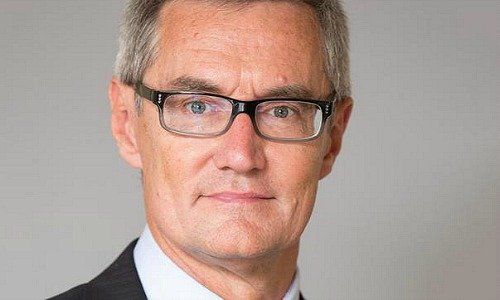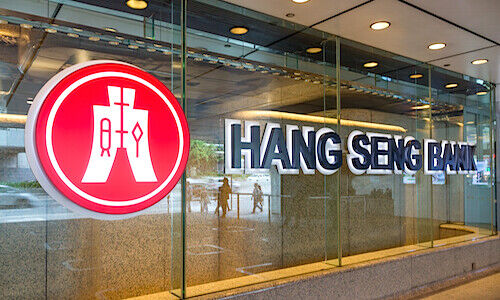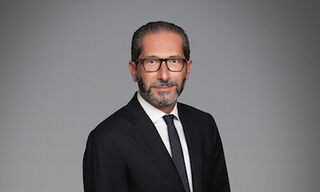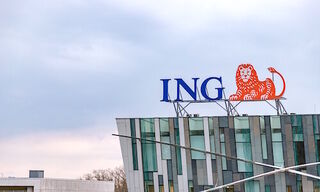Management without boldness does not perform, while management without discipline is reckless, Didier Saint-Georges writes in an essay on finews.first.
finews.first is a forum for renowned authors specialized on economic and financial topics. The texts are published in both German and English. The contributions appear in cooperation with Pictet, the Geneva-based private bank. The publishers of finews.ch are responsible for the selection.
Investors are notoriously uneasy when it comes to managing the risk that an impending political event presents to their savings. The recent market correction following the Brexit referendum offers a striking illustration of the danger in binary wagers, especially when no value is added.
With the risk of Brexit all but ruled out in the last opinion polls to be published, many investors gorged themselves on an apparently safe bet. In doing so, they broke two basic rules of risk management in one fell swoop:
- always keep a free mind and have the courage to go against the flow;
- keep from highly asymmetric risks.
The referendum risk was just that: a Remain vote was virtually a non-event, whereas a surprise majority in favour of Leave would inevitably have a seriously negative impact on the markets, which is what happened.
This also reminds us that risk management does not stop there. The markets’ brief speculative exuberance now over, the task will be to factor this new event into an objective risk analysis and decide, whether or not, the markets might be blinded by fear. Risk management also involves risk taking. This often means being too early, or making mistakes sometimes.
«The U.K. vote would not have been such a big deal if the global economy wasn’t so fragile»
More than a question of technical expertise, risk management is a matter of judgment and character. To put it bluntly, expertise is knowing that the tomato is a fruit from the nightshade family; wisdom is not putting it in a fruit salad.
The U.K. vote would not have been such a big deal if the global economy wasn’t so fragile. One has to bear in mind the markets’ regime change. Global equity markets’ 70 percent rise from 2011 to 2015, when corporate earnings were unchanged, was largely an act of faith, assuming that it was only a matter of time before profits climbed on the back of more sustained global growth resulting from central banks’ persistent intervention. However, this confidence started to wane in 2015.
Just as the Federal Reserve was bringing its third round of quantitative easing to an end, corporate earnings went into decline around the world. Equity markets started to relinquish their past gains, and long-term yields dropped even more steeply.
The credibility of the Bank of Japan and European Central Bank began to fade, making the poor level of growth actually achieved (nearly eight years after the collapse of Lehman Brothers, there are still 4.5 million more unemployed people in the Eurozone than there were in 2007) even more vulnerable to any external shock.
«The lack of economic growth is starting to have visible political effects»
Three shocks have occurred since then: the renminbi’s devaluation in August 2015, the oil price slump in January 2016, and now the Brexit vote, each one posing a new threat to global growth and fuelling market instability.
The lack of economic growth is starting to have visible political effects. In the United States, stagnation of the median real wage since 2000, during which time quantitative easing has made the wealthiest households even richer, enhances the popularity of Donald Trump’s populist, protectionist posturing.
A gloomy economic outlook in the European Union was a major factor in David Cameron’s inability to convince a majority of UK voters to put their fate in EU hands. Similar causes having similar effects, the lack of economic success in Europe could lead to further discontent.
«It is now plausible that the markets might start preparing for the next stage»
Protest votes will become more commonplace at forthcoming elections if Europe cannot rediscover the path to growth, and will summon the spirit of disintegration. If it wants to avoid the dangers of increasing reflexivity between political tension and slower growth, Europe – Germany in particular – will have to get to grips with the risks inherent in maintaining the economic orthodoxy.
It is now plausible that the markets might start preparing for the next stage, which would involve recognising the economic ineffectiveness of quantitative easing, while expecting fiscal stimulus policies – hitherto considered «impossible» given the state of public finances – to start taking over.
«It is likely that central bankers will confirm or even step up their short-term support»
Politically, will the «traditional» political class be capable of an unexpected awakening after sensing the wind of change? Moderate voters tempted by breakaway rhetoric could see the political and even economic crisis unfolding in the UK as a clearer sign of the dangers of playing with fire.
Boris Johnson’s desertion a few days after the Leave campaign’s «victory» could also foster a more critical view of blatantly populist arguments. From this perspective, the poorer-than-expected results of the Unidos Podemos movement in Spain’s recent general election, which immediately followed the Brexit vote, are encouraging.
In the meantime, at the very least, it is likely that central bankers will confirm or even step up their short-term support. The Bank of England has already said as much, and the Federal Reserve will probably be even more reluctant to tighten financial conditions.
«Freedom of thought makes this possible»
Heightened risks of a global economic slowdown are encouraging us to leave the general composition of our portfolios unchanged. Their regional diversification and balance between high visibility stocks, European bank bonds, gold stocks, safe haven currencies and US Treasuries, which fully served their purpose when the markets slumped on 24 June, are likely be broadly maintained. As we expected, market instability – now confirmed three times – supports our decision to manage exposure levels very actively to take full advantage of transitional movements.
Against a backdrop of low or even negative interest rates, claiming to generate long-term performance without taking risks would be a greater fallacy than ever before. The evidence suggests that the quest for performance starts by being daring, and endeavouring to be right more often than wrong.
Though it may seem obvious, this long-term objective is by no means trivial: independent analyses show that the best long-term fund managers make the right decisions around 60 percent of the time. But not all errors are created equal; for example, the five worst months for the S&P 500 index in the last 20 years wiped out 50 percent of its performance (which drops from +560 percent to +236 percent).
Management without boldness does not perform, while management without discipline is reckless. Risk management means paying careful attention to asymmetric risks and being constantly aware of one’s responsibility to justify clients’ trust. Freedom of thought makes this possible.
Didier Saint-George is a managing director and member of the investment committee at French fund management firm Carmignac Gestion.
Previous contributions: Rudi Bogni, Adriano B. Lucatelli, Peter Kurer (twice), Oliver Berger, Rolf Banz, Dieter Ruloff, Samuel Gerber, Werner Vogt, Walter Wittmann, Albert Steck, Alfred Mettler, Peter Hody, Robert Holzach, Thorsten Polleit, Craig Murray, David Zollinger, Arthur Bolliger, Beat Kappeler, Chris Rowe, Stefan Gerlach, Marc Lussy, Samuel Gerber, Nuno Fernandes, Thomas Fedier, Claude Baumann, Beat Wittmann, Richard Egger and Maurice Pedergnana.



















